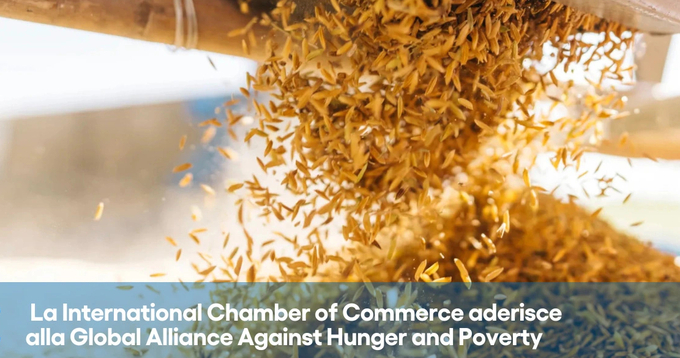November 26, 2025 | 08:51 GMT +7
November 26, 2025 | 08:51 GMT +7
Hotline: 0913.378.918
November 26, 2025 | 08:51 GMT +7
Hotline: 0913.378.918

According to FAO, around 735 million people or one in every people in the world faced hunger in 2023, highlighting the challenge of achieving zero hunger by 2030 as pledged in the Sustainable Development Goals.
The Food and Agriculture Organization of the United Nations (FAO) formalized its membership as a founding member of the Global Alliance Against Hunger and Poverty, a G20 initiative championed by Brazil to dramatically expedite efforts to achieve the eradication of poverty and hunger by 2030 as well as to reduce inequalities.
In joining FAO said it “commits to collaborate with other Alliance members to develop innovative solutions and share good practices in learning and knowledge exchange and dissemination on voluntary and mutually agreed terms, data collection and analysis, including by leveraging existing local, national, and international knowledge networks, coalitions, communities and other fora related to aspects relevant to the fight against hunger and poverty.”
The Global Alliance has garnered unanimous support at G20 members this year. It will be formally launched at the G20 Leaders Summit in mid-November. Numerous international financial institutions and UN agencies have or are expected to join along with governments, philanthropic foundations and knowledge institutions.
FAO will play a prominent role as it will host the Alliance’s support mechanism at its headquarters in Rome. The support mechanism will serve as a logistics and coordinating to reduce transaction costs, mitigate risks and maximize yields on donor investments through flexible collaboration instruments and innovative finance modalities.
“The Alliance will enable large-scale country-owned and country-led implementation of evidence-based policy instruments to eradicate hunger and poverty through its national, knowledge and financial pillars,” FAO Director-General QU Dongyu said.
“It will be key to bringing knowledge, expertise and success stories to the parts of the world where it is needed the most,” he added.
The Global Alliance
The Global Alliance is set up to support national public policies such as school meals, cash transfers, maternal and early childhood nutrition, gender equality.
Smallholder farmer support and water access and management schemes. It entails an evidence-based Policy Basket and six “sprints” or areas where accelerated actions targeting the most vulnerable can lead to quick, impactful and sustainable results on the ground.
According to FAO, around 735 million people or one in every people in the world faced hunger in 2023, highlighting the challenge of achieving zero hunger by 2030 as pledged in the Sustainable Development Goals.
The Policy Basket at the heart of the Global Alliance contains up to now around 50 policy instruments and numerous linked country examples.
It covers areas from child and family support, conditional and unconditional cash transfers, employment guarantee schemes, school meals programmes, nutrition, support for livelihood diversification, basic education and access to drinking water, access to credit and irrigation resources and climate-smart technologies and support for smallholder farmers.
In its Statement of Commitment, FAO emphasized that the Policy Basket will be collectively built and based on well-defined policy instruments with a clear scope, implementable by governments, -and primarily reaching out to people experiencing poverty and hunger.
FAO also indicated its intention to contribute by assembling, analyzing, monitoring and improving access to data and information in areas related to the Organization’s mandate.
(FAO)

(VAN) Brazil's COP30 presidency pushed through a compromise climate deal on Saturday that would boost finance for poor nations coping with global warming but that omitted any mention of the fossil fuels driving it.

(VAN) Poultry farmers in the UK have been warned that they could face one of the worst winters yet for bird flu.

(VAN) Prices of main-crop paddy have risen sharply, with jasmine rice hitting 16,100 baht per tonne — the highest level in years.

(VAN) In Brazil, FAO unveiled a series of reports and initiatives showing how sustainable agrifood systems are a solution to the climate crisis.

(VAN) With names like neodymium and dysprosium, rare-earth elements sound exotic — and their perceived scarcity has only added to the mystique.

(VAN) In a new study published in Trends in Biotechnology, researchers used a gene-editing technology called CRISPR to increase a fungus's production efficiency and cut its production-related environmental impact by as much as 61%- all without adding any foreign DNA.

(VAN) A top official in Beijing’s Cop delegation says China is committed to clean energy – but US’s absence is a problem.